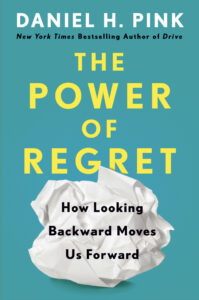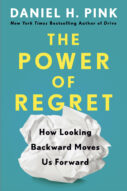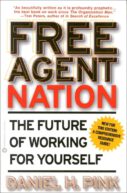Why I Wrote The Power of Regret
What You'll Learn in The Power of Regret
- Regret makes us human. Regret is not dangerous or abnormal. It is one of our most common emotions – and, treated properly, one of our most valuable.
- Regret makes us better. When we confront our regrets – rather than ignore them or wallow in them – this emotion can be an engine of progress. It can deepen our learning, sharpen our decisions, and clarify what we value.
- There is a hidden architecture beneath our regrets. Around the world, people seem to have the same four core regrets. Foundation regrets (“If only I’d done the work.” Boldness regrets (“If only I’d taken the chance.”) Moral regrets (“If only I’d done the right thing.”) Connection regrets (“If only I’d reached out.”)
- Science offers a three-step process for turning regrets into progress. 1. Treat your regrets with kindness rather than contempt. 2. Talk about or write about your regrets to relieve the burden and make sense of them. 3. Take a step back and draw a specific lesson from the regret than you can apply in the future.
- Regret shows us how to live well. By understanding what people regret the most, we uncover what they value the most. In that way, regret—painful though it may be—serves as a compass for a meaningful life.
Most Highlighted on Kindle
Purchase Now:
The Power of Regret: How Looking Backward Moves Us Forward
A compelling exploration of how embracing our regrets can guide us toward wiser choices, deeper meaning, and greater personal growth.

Awards & Accolades
Instant New York Times Bestseller:
Debuted at #3 on the New York Times Hardcover Nonfiction list.
Named a Best Book of the Year by NPR and Financial Times
Named an Editor's Pick and a Best Book of the Year by Amazon
Translated into 33 languages














